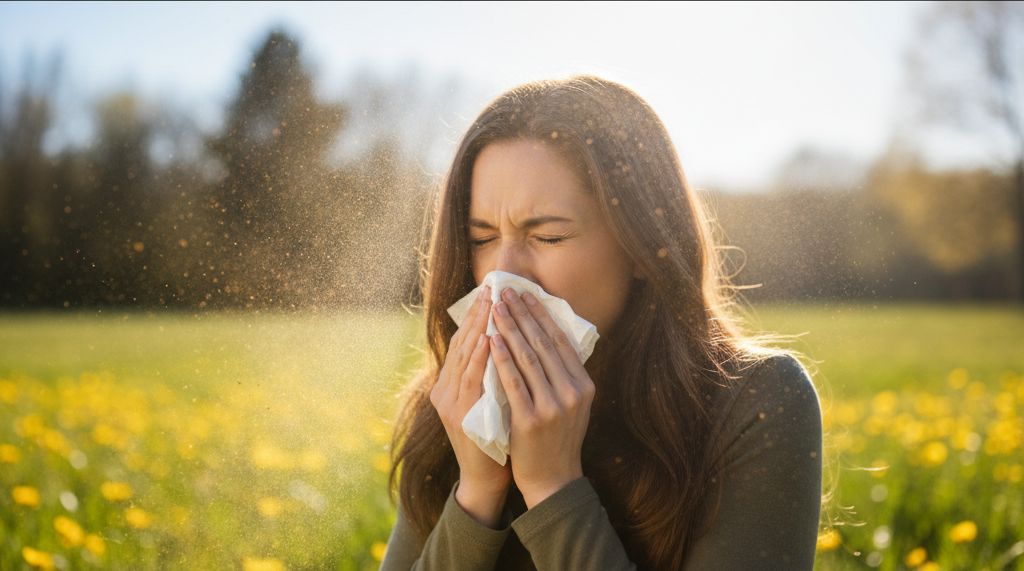
Introduction: Why Allergies Matter for Expats in Panama
For many expats, moving to Panama means sunshine, beaches, and a vibrant lifestyle. But there’s one unexpected challenge that often goes unmentioned: allergies in Panama.
The tropical climate, with high humidity and year-round warmth, creates conditions very different from North America or Europe. Expats frequently report developing allergies they never had before—or finding that old allergies disappear while new ones emerge.
Understanding the most common allergens in Panama and how to manage them is essential for anyone planning to live here long-term.
Common Allergies in Panama
1. Humidity and Mold
Medical specialists from Caja de Seguro Social confirm that mold and fungi are among the top triggers in Panama. The constant humidity allows mold to grow in bathrooms, kitchens, and even closets.
Expats often say:
“I never had allergies back home, but in Panama I’m constantly fighting mold.”
2. Dust Mites
Linked to the same humidity problem, dust mites are widespread. They can cause respiratory symptoms, sneezing, and nighttime discomfort.
3. Insects
Allergic reactions are not limited to bites. Some expats develop symptoms from insect particles in the air or droppings. These can trigger rhinitis-like conditions.
How Expats Manage Allergies in Panama
Affordable and Accessible Medication
One of the biggest advantages for expats is the low cost of allergy medications. Antihistamines like loratadine (Claritine), cetirizine (Zyrtec), and nasal sprays are available over-the-counter in most pharmacies, often at a fraction of U.S. prices.
Home Adjustments
- Air Conditioning & Dehumidifiers: Keep indoor humidity low to reduce mold and dust mites.
- Frequent Cleaning: Use anti-fungal products in bathrooms and closets.
- Mosquito Nets & Screens: Reduce exposure to insect allergens while preventing bites.
A common expat tip: “Running the AC all night is not a luxury—it’s a necessity for allergy control.”
Asthma and Allergies in Panama
Asthma is often linked to the same triggers that cause allergies in Panama: high humidity, mold, dust mites, and air pollution in urban areas. Expats with pre-existing asthma report more frequent flare-ups during the rainy season.
Fortunately, asthma medication (inhalers, bronchodilators, corticosteroids) is widely available and inexpensive compared to North America. Pharmacies carry both brand and generic versions, often without the need for a prescription.
Tip from expats: Always carry a rescue inhaler, especially if you plan to spend time in the highlands during rainy season, where mold and pollen are more intense.
The Diagnostic Challenge
Sometimes, allergy symptoms overlap with tropical illnesses. Several expats have mistaken early signs of dengue or flu for simple allergies.
Rule of thumb: If symptoms persist or worsen despite over-the-counter treatment, see a doctor immediately. Clinics and labs in Panama, like Clinilab, offer allergy testing to identify specific triggers and create a tailored management plan.
Practical Tips for Expats With Allergies
- Bring a starter supply of antihistamines when you first arrive, then transition to local pharmacies.
- Check your housing carefully: Avoid rentals with visible mold issues.
- Use sealed storage for clothes and linens during the rainy season.
- Consult local specialists: Panama City and David have allergists and immunologists familiar with expat needs.
- Differentiate symptoms: Don’t assume it’s “just allergies.” Always rule out other tropical illnesses.
Conclusion: Living Comfortably With Allergies in Panama
While allergies in Panama are common, they are manageable with the right strategies. For many expats, it’s just a matter of adjusting lifestyle habits and using accessible, low-cost treatments.
The key takeaway? Allergies shouldn’t stop you from enjoying life in Panama. With proper preparation, expats can adapt to the tropical environment and maintain a healthy, active lifestyle.
5 FAQ about Allergies in Panama
1. What are the most common allergies in Panama?
The most frequent triggers include mold, dust mites, insect particles, and humidity-related allergens. Expats often report developing allergies they never had before.
2. Is asthma common in Panama?
Yes. Asthma is often linked to the same triggers as allergies—humidity, mold, and pollution. Expats with pre-existing asthma should prepare for flare-ups, especially in the rainy season.
3. Are allergy medications expensive in Panama?
No. Antihistamines and inhalers are widely available in pharmacies at a fraction of U.S. prices, often without a prescription.
4. Can allergies in Panama be prevented?
Prevention focuses on reducing humidity indoors with air conditioning and dehumidifiers, frequent cleaning, and using anti-fungal products.
5. How do expats know if symptoms are allergies or something more serious?
If symptoms don’t improve with over-the-counter treatment, see a doctor. In Panama, dengue, flu, or respiratory infections can mimic allergies. Clinics offer allergy testing for proper diagnosis.
